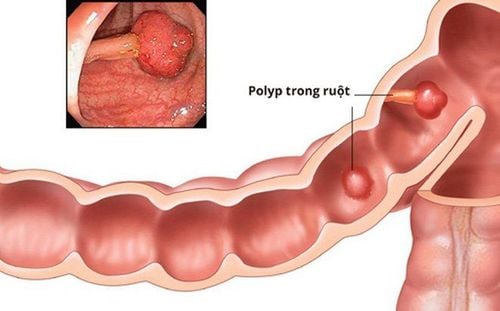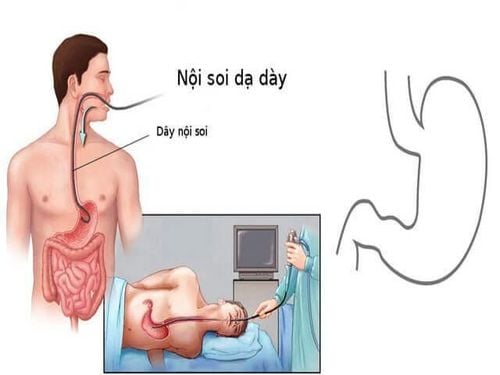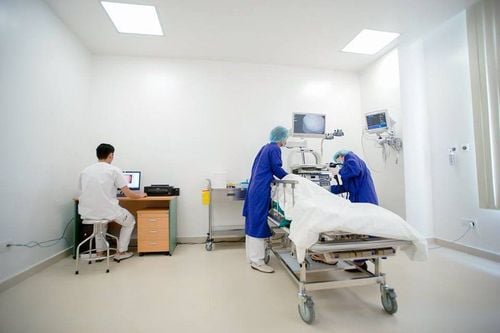This is an automatically translated article.
Article written by MSc Pham Thi Thu Huong - Department of Gastroenterology - Endoscopy - Vinmec Times City International General Hospital
Irritable bowel syndrome, commonly referred to as IBS (Irritable bowel syndrome) is a chronic disorder of the digestive system. Its main symptoms are abdominal pain and a change in bowel habits (eg, constipation and/or diarrhea).
1.The concept of irritable bowel syndrome
IBS is the most commonly diagnosed gastrointestinal disease, second only to the common cold. An estimated 10 to 20 percent of the general population experience symptoms of IBS, although only about 15 percent of these people have a condition that actually requires medical help.
The chronic nature of IBS and the challenge of managing its symptoms can be daunting for both patients and doctors. However, there are also many medical treatments and therapies that can help improve the symptoms of this disease.
2. Causes of Irritable Bowel Syndrome
There are several theories that explain how and why irritable bowel syndrome (IBS) develops. Although there have been many studies on this disease, the actual cause of the disease has not been clearly explained.

Hình ảnh đại tràng bị co thắt
There are several theories that explain how and why irritable bowel syndrome (IBS) develops. Although there have been many studies on this disease, the actual cause of the disease has not been clearly explained.
One theory is that the cause of IBS is abnormal contractions of the colon and small intestine (hence the term "spasmodic colon", which is sometimes used to describe irritable bowel syndrome). .
Vigorous intestinal contractions can cause severe bowel spasms, which may explain why some treatments, such as antispasmodics and fiber boosters (both helps to regulate spasms of the colon), relieves symptoms in some cases.
However, irregular contractions do not explain IBS in all cases, and it is not clear whether the contractions are a symptom or cause of the condition.
In some people, IBS develops after a serious gastrointestinal infection (eg, a Salmonella or Campylobacter infection, or a gastrointestinal viral infection).
However, scientists are not sure how gastrointestinal infections trigger IBS to develop and most people with IBS have no history of these infections.
People with irritable bowel syndrome (IBS) who need to see a doctor or seek medication are more likely to experience anxiety and stress than those who do not seek help. Stress and anxiety are known to affect intestinal contractions.
Therefore, anxiety and stress can worsen symptoms. However, stress or anxiety is probably not the underlying cause of this condition.

Các loại đậu có thể làm bệnh IBS trầm trọng thêm như đậu đỏ,đậu trắng
Intolerance to certain foods is common in patients with IBS. The main cause is sensitivity or allergy to food. This theory is difficult to prove, although it is still being researched. The best way to detect an association between IBS symptoms and food sensitivities is to systematically eliminate certain food groups (a process known as an "elimination diet"). ).
This should only be done under the guidance of a doctor or nutritionist. Eliminating certain foods from the diet without consulting a doctor can lead to missing important sources of nutrients. Additionally, unnecessary dietary restrictions can have a negative impact on your quality of life.
Certain foods are known to cause IBS-like symptoms or worsen IBS, including dairy products (containing lactose), legumes (such as white beans) , red beans) and cruciferous vegetables (such as broccoli, cauliflower, Brussels sprouts, and cabbage).
These foods increase gas in the intestines, which can cause intestinal spasms. Certain oral medications also have an effect on the gut that may contribute to the symptoms of the disease.
Many researchers believe that IBS is caused by an increased sensitivity of the gut. The medical term for this is "Increased visceral secretion." These researchers suggest that overactive nerves in the gut in people with IBS increase pain perception, so that normal gas or movement is considered excessive and causes pain.
Some patients with severe IBS feel better when treated with medications that reduce pain in the gut (such as some antidepressants).
3.Common Symptoms of Irritable Bowel Syndrome
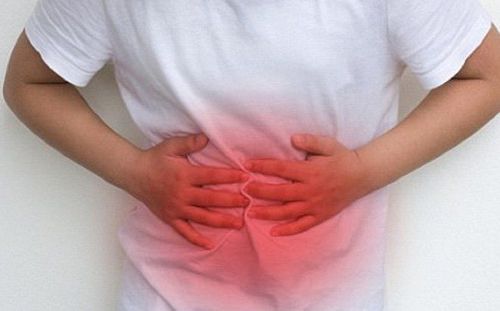
Người mắc hội chứng ruột kích thích thường bị đau bụng
Irritable bowel syndrome (IBS) usually begins in young adulthood, and is more common in women than men. The most common symptom of IBS is abdominal pain associated with changes in bowel habits (diarrhea and/or constipation).
Abdominal pain - abdominal pain is often painful and varies in intensity. Some people find that stress, emotions, anxiety, and eating aggravate the pain, and the pain goes away after a bowel movement. Some women with IBS find an association between their pain and their menstrual cycle.
Change in bowel habits - Change in bowel habits is another typical symptom of IBS. This may include diarrhea, constipation, or alternating diarrhea and constipation. If diarrhea is the more common form, the condition is called "diarrhea-predominant" IBS; If constipation is more common, the condition is called "constipated form" IBS.
Diarrhea - People with irritable bowel syndrome may have frequent loose stools. Diarrhea usually occurs during the day, and is most frequent in the morning or after a meal. Diarrhea is often preceded by a feeling of extreme urgency and then by a feeling that the bowels will not go away. About half of people with IBS also notice a mucus discharge accompanied by diarrhea. Diarrhea that occurs at night is very unusual with IBS.
Constipation – Constipation in IBS can be intermittent and last for days. Stools are usually hard and pelleted. You may not feel empty after having a bowel movement, or the sensation of having an incomplete bowel movement, even if the rectum is empty. This feeling can lead to stress and sitting on the toilet for long periods of time.
Other Symptoms - Other symptoms of IBS include bloating, gas, and belching.
4. Diagnosing irritable bowel syndrome
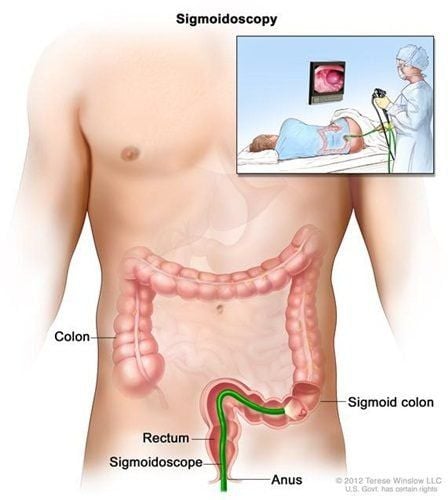
Nội soi đại tràng sigma giúp bác sĩ chẩn đoán chính xác những bất thường ở đường ruột
Some other gastrointestinal conditions can have symptoms similar to irritable bowel syndrome (IBS). Examples: Malabsorption syndromes (reduced absorption of nutrients in the intestinal tract), inflammatory bowel diseases (such as ulcerative colitis and Crohn's disease), celiac disease (in which the body cannot break down a protein) called "gluten") and microscopic colitis (a condition associated with inflammation of the colon).
There is no specific diagnostic test for IBS. To diagnose the disease, clinicians rely on symptoms of the disease and compare your symptoms with defined diagnostic criteria.
However, these criteria are not entirely accurate in differentiating IBS from other medical conditions in all people. Therefore, based on medical history, physical examination, and selective tests can help rule out other conditions.
Blood tests - Most clinicians order routine blood tests in people with suspected IBS. These tests are usually normal, but they can help rule out other medical conditions.
Some doctors may also order more invasive tests, such as sigmoidoscopy or colonoscopy, especially in people over 40 years of age.
These are tests that allow the clinician to see inside your colon and rectum using a medical instrument inserted into the lumen of the colon. Endoscopic images help doctors accurately diagnose abnormalities in your intestines, and devise a plan to treat disease or prevent some other diseases (for example, preventing colorectal cancer).
Vinmec International General Hospital is one of the hospitals that not only ensures professional quality with a team of leading medical doctors, a system of modern equipment and technology. The hospital provides comprehensive and professional medical examination, consultation and treatment services, with a civilized, polite, safe and sterile medical examination and treatment space. Customers when choosing to perform tests here can be completely assured of the accuracy of test results.
Please dial HOTLINE for more information or register for an appointment HERE. Download MyVinmec app to make appointments faster and to manage your bookings easily.
References on UpToDate: Patient education: Irritable bowel syndrome




